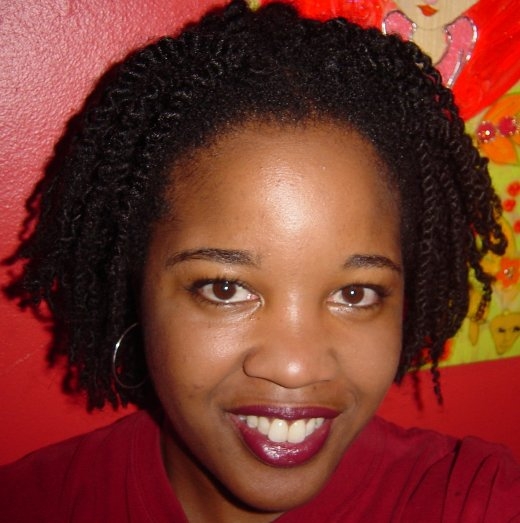
![]() BY DIANCA POTTS Who says there are no second acts in American Life? (OK, F. Scott Fitzgerald said it, but that doesn’t mean it’s true) Scratch an NPR host and find a budding novelist. In advance of her appearance tonight at the Free Library, we called up former News And Notes host Farai Chideya to discuss just about everything under the sun: Obama, NPR, blogging, goth rock, the state of race relations in America, the Smiths, mixtapes and, most importantly her new book. Chideya is currently on the road in support of her debut novel, Kiss the Sky, which captures the world of sex, drugs, and rock ‘n roll from page to page alongside a hand-picked, heartfelt soundtrack selected and sequenced for its mood-cuing tempos and narrative relevance. You go, girl!
BY DIANCA POTTS Who says there are no second acts in American Life? (OK, F. Scott Fitzgerald said it, but that doesn’t mean it’s true) Scratch an NPR host and find a budding novelist. In advance of her appearance tonight at the Free Library, we called up former News And Notes host Farai Chideya to discuss just about everything under the sun: Obama, NPR, blogging, goth rock, the state of race relations in America, the Smiths, mixtapes and, most importantly her new book. Chideya is currently on the road in support of her debut novel, Kiss the Sky, which captures the world of sex, drugs, and rock ‘n roll from page to page alongside a hand-picked, heartfelt soundtrack selected and sequenced for its mood-cuing tempos and narrative relevance. You go, girl!
PHAWKER: With News And Notes‘ recent cancellation, what are your thoughts on why the one black-oriented NPR program was the one to get the axe?
FARAI CHIDEYA: Well, News and Notes ended in March and I left in January and it had been fighting for its life for a whole year. It wasn’t as if when it got canceled it was out of the blue. And when you look at what happened, a lot of shows had gotten canceled and that part is  something you just have to deal with. I think the problem is that the entire NPR infrastructure didn’t support the show, I don’t mean that every single person in NPR didn’t support the show, I mean that the whole structure in how NPR was created, I don’t think that it really helped us find our audience because we had very loyal audience. Three of the four shows it had developed in recent years got canceled. It developed our show, Tell Me More with Michelle Harton which is still on, Park Projects, which got canceled, and Day to Day which got canceled. So it means basically that they haven’t been able to develop new shows that know how to serve newer audiences. Sometimes that’s younger audiences, sometimes that’s black audiences, Latinos, whatever. How can you survive if you can’t pull in new audiences? I think there are a lot of people who want to deal with that, not just the racial side but the entire question of new audiences and that’s how I see it at this point, that the company, at least when I was there and I’ve been gone now going on six months, was not set up to handle things that weren’t what they already did well. And that’s not just true for NPR. A lot of company’s that have been doing something well for years and then they find out its not enough because times have changed and so now we’re seeing a lot of chaos as companies try to change.
something you just have to deal with. I think the problem is that the entire NPR infrastructure didn’t support the show, I don’t mean that every single person in NPR didn’t support the show, I mean that the whole structure in how NPR was created, I don’t think that it really helped us find our audience because we had very loyal audience. Three of the four shows it had developed in recent years got canceled. It developed our show, Tell Me More with Michelle Harton which is still on, Park Projects, which got canceled, and Day to Day which got canceled. So it means basically that they haven’t been able to develop new shows that know how to serve newer audiences. Sometimes that’s younger audiences, sometimes that’s black audiences, Latinos, whatever. How can you survive if you can’t pull in new audiences? I think there are a lot of people who want to deal with that, not just the racial side but the entire question of new audiences and that’s how I see it at this point, that the company, at least when I was there and I’ve been gone now going on six months, was not set up to handle things that weren’t what they already did well. And that’s not just true for NPR. A lot of company’s that have been doing something well for years and then they find out its not enough because times have changed and so now we’re seeing a lot of chaos as companies try to change.
PHAWKER: How do you see the election of Obama impacting African-Americans and minorities as a whole?
FARAI CHIDEYA: I think that President Obama has completely changed the game in terms of race, ethnicity, and achievement. And not just political achievement. There’s something very specific about then Senator, now President Obama where he has told his life story and it wasn’t just like some black guy ran for president. He is this guy who is both black and biracial and international in that he lived abroad as a kid and has a father from another country and in some ways all American with his mother’s family being rooted in military service and being slave 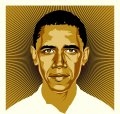 owners in the past, and this and that. He’s a person with a very complicated biography, but what he did is that he told us all that before he ran for president. He told us in his books, he told us in speeches. By the time a mainstream audience got to know him and people would bring up things like, “Oh didn’t you use drugs,” it’s like, “Yeah I wrote about it in my memoir,” so it wasn’t even an issue, it was like yeah, I already told you. I think was brilliant. I think that Obama has changed the game, not just on a racial level but also in the idea of having your own story and how important that is for people who are in leadership positions. And of course, his family continues to redefine the American family, what that looks like. I guess the thing that really interests me the most about him, and I’ve interviewed him a couple times, is really how he defines himself. He knew, “I am such an outlier of what a typical politician looks like, I have to explain to people who I am. So that what he did and he did it masterfully.
owners in the past, and this and that. He’s a person with a very complicated biography, but what he did is that he told us all that before he ran for president. He told us in his books, he told us in speeches. By the time a mainstream audience got to know him and people would bring up things like, “Oh didn’t you use drugs,” it’s like, “Yeah I wrote about it in my memoir,” so it wasn’t even an issue, it was like yeah, I already told you. I think was brilliant. I think that Obama has changed the game, not just on a racial level but also in the idea of having your own story and how important that is for people who are in leadership positions. And of course, his family continues to redefine the American family, what that looks like. I guess the thing that really interests me the most about him, and I’ve interviewed him a couple times, is really how he defines himself. He knew, “I am such an outlier of what a typical politician looks like, I have to explain to people who I am. So that what he did and he did it masterfully.
PHAWKER: With the loss of job security and the shrinking dollar, how do you think the economic crisis is effecting the music scene or performing artists and musicians like the protagonists of “Kiss the Sky”?
FARAI CHIDEYA: As part of my publicity of “Kiss the Sky” and friend and I threw a rock showcase in Williamsburg, Brooklyn this past weekend and they had this big thing called the North Side festival, which is a big Williamsburg rock festival. This friend of mine started something called the Bold As Love.Us which is an online destination for black rock. When he uses the term black rock it doesn’t mean a specific sound, he’s really just looking at black people in bands in the rock and alternative scene. SO some of the bands we had in the showcase were bands like the Smirks, who I think will do very well. The lead singer of the Smirks is black but the rest of the band mates are white. In one band it was like six black people and an Asian American drummer. The whole thing is that in my novel, “Kiss the Sky,” I talk about having a space to be black and be in rock and not just in hip hop and overall I think that the kind of band that Sky is, somewhat indie, somewhat mainstream, somewhat alt rock band, it really depends on how their luck breaks and also on marketing. Being a good musician or being a great musician is a matter of talent and training and inspiration, but being a successful musician is a mixture of luck and marketing and business savvy. SO much of this game is about reaching people with your product and your ideas. You can have the best music in the world but if you live someplace where people don’t like that music you have to find ways to reach the people who would and that’s what the internet has done, its given new pathways for bands to build audiences in places they haven’t been to before. I think the music industry is now becoming a place where viral marketing and internet marketing is critical to the survival of indie rock bands in particular. Without that, bands are dead.
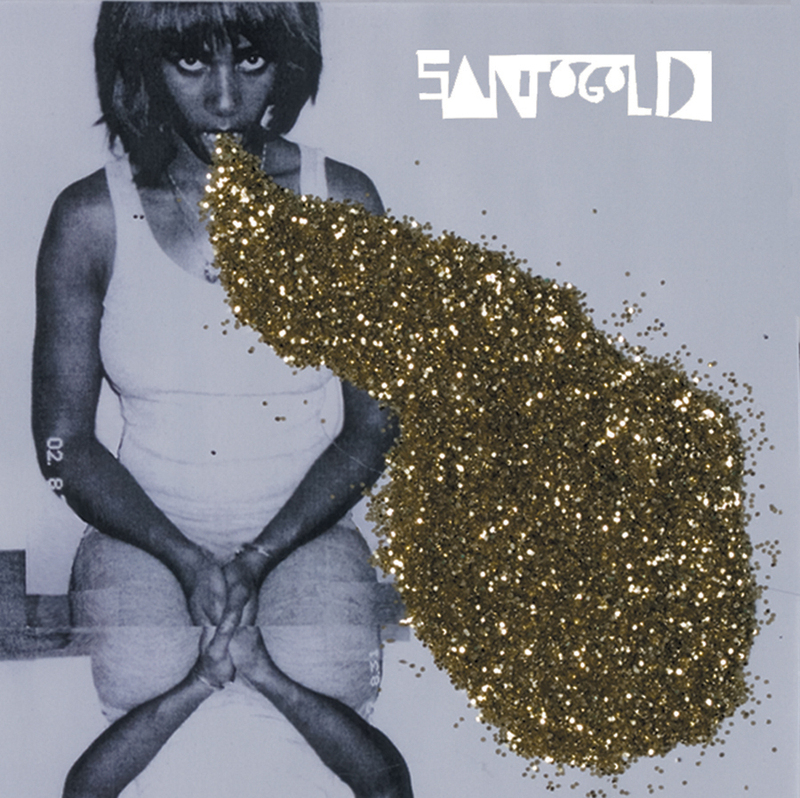 PHAWKER: With acts and bands like Santigold, Bloc Party, and TVOTR, how do you see the African American’s presence in the alt rock and indie scene? Do you think music created by African Americans within the rock scene is received differently by their audience which is often comprised of minorities as well as whites?
PHAWKER: With acts and bands like Santigold, Bloc Party, and TVOTR, how do you see the African American’s presence in the alt rock and indie scene? Do you think music created by African Americans within the rock scene is received differently by their audience which is often comprised of minorities as well as whites?
FARAI CHIDEYA: One thing that I don’t know as much as the reception from a large black audience verses a more light, more multiracial audience is because I haven’t seen with some exception a lot of black rock bands perform in front of primarily black crowds so it would be really interesting to see footage from the Roots Picnic. I would have loved to have seen what the audience was like and who they responded. I saw TVOTR in Los Angels and there were quite a few black people there but it was a primarily white crowds. Most of the time when I see black rock bands it’s with a primarily white crowd.
PHAWKER: I saw them in Philly this past fall. It’s sad to see such a lack of racial diversity in the indie scene when it comes to fans, but I’ve been going to shows since I was in Jr. High and I’ve honestly never seen that many black people at a show in my life. It was strange to see someone of my ethnicity identifying to the same music as me.
FARAI CHIDEYA: Well I think there’s a whole movement around that really. Check out the Bold As Love.US, the Afro Punk movement, which is having a big festival in NY this weekend and the Urban Alternatives festival which is going on now. There’s a lot of movement around that. It’s a time now where people are really taking another look because I think that hip-hop has gotten really stale, honestly. And I don’t mean all hip-hip, but commercial hip-hop has gotten really stale.
PHAWKER: For you, what differences do you see between black and white women who are leads in rock bands?
FARAI CHIDEYA: I think that in general the perceptions of black women’s sexuality is more extreme. For example if you were to make an incredibly large spreadsheet of how women were treated in movies, I think a lot of times black women are perceived as sexualized but not always refined, you know having like a primal sexuality. But then when it comes to rock music, a lot of the women are perceived to be or are thrown into this category of not asexuality but … Like think about somebody like Grace Jones who blended all these different things. She’s just really intense and a lot of people recognize that she’s incredibly beautiful in this very extreme way and incredibly sexual so she is as Rick James would say, “the girl you don’t take home to mother.” I don’t think it’s just about rock but a lot of that has a lot to do with what positions people have because there aren’t that many spaces for black women in rock have been able to operate in. When you don’t have a lot of room for people, the room is in soul music, the room is in hip-hop, the room is not in rock, so the women who really go into rock, punk, etc. do tend to be somewhat extreme. I’m thinking of Honey Child Colman, she does her own stuff and she’s with this band called Pollen. She’s a punk rock black woman, so three women, two of them who are white and there’s a black man, so it’s a really interesting dynamic where I think she is perceived as more otherworldly than sexual, where as if she were white she’d be perceived as more sexual. I guess what I would say is that when black women fit traditional gender and appearance, black women are over sexualized but then when black women break roles and do something different, its like there isn’t no space in the public role to just be yourself.
PHAWKER: What inspired you to get into journalism or blogging and start writing? What was the first thing that you published?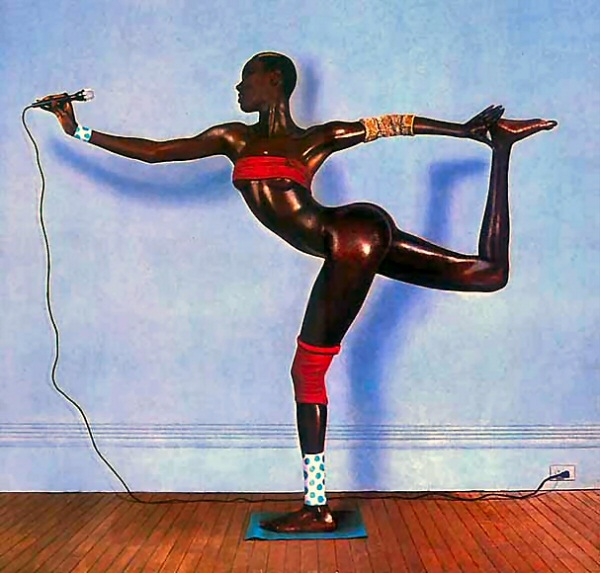
FARAI CHIDEYA: The first thing I ever published professionally was an article about the need to end Apartheid that ran in Seventeen magazine when I was sixteen years old and that was because my family was very invested in having a voice. My mother and father had both done journalism at one point in their lives so it was very natural for me to move in that direction. I didn’t really realize that I’d end up as a journalist full time, but with the internships that I got in college it just started moving in that direction but I always loved fiction and always wanted to write a novel.
PHAWKER: What was your favorite band when you were younger? When you started getting into music what kind of stuff were you into?
FARAI CHIDEYA: Oh gosh. When I was in high school I really liked The Police, a lot of The Police, U2, stuff like that. Then I started moving into goth rock, Bauhaus, etc., etc. I listened to a lot of The Smiths, The Cure. I also love soul music and hip-hop, so as I was growing up I’d listen to everything from Afrika Bambaataa, Lisa Lisa and Cult Jam, Salt N’ Pepa, Peaches and Herb. I just have very broad taste and that’s what my family is like and I’m blessed that I have a family like that. In terms of when I really started being different in terms of my musical taste was when I got into gothy alternative rock because nobody else in my family was listening to that, but I was and I was interested in it.
PHAWKER: What’s your favorite Smiths song?
FARAI CHIDEYA: “This Charming Man.”
PHAWKER: Really? That’s mine too!
FARAI CHIDEYA: Get out of here!
PHAWKER: No, seriously. Blame DCFC.
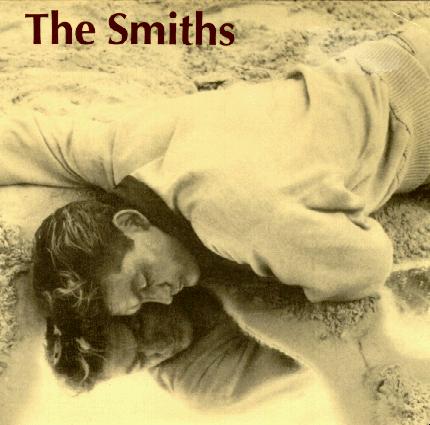 FARAI CHIDEYA: I love their instrumentation. Everything works fantastically. The aspects of the lyrics, his voice, and also the fact of the matter is the Johnny Marr guitar in “This Charming Man” is so sparkly, its like effervescent. I like the fact that they can sing these sometimes really dark songs and have a really upbeat tone to them which is just fantastic.
FARAI CHIDEYA: I love their instrumentation. Everything works fantastically. The aspects of the lyrics, his voice, and also the fact of the matter is the Johnny Marr guitar in “This Charming Man” is so sparkly, its like effervescent. I like the fact that they can sing these sometimes really dark songs and have a really upbeat tone to them which is just fantastic.
PHAWKER: The set up of the chapters’ titles within “Kiss the Sky” are reminiscent of a mix or playlist of some sort. Would you say that in anyway they are songs that your protagonist Sophie or you yourself relate to?
FARAI CHIDEYA: I think there’s a specific way in our time when people have come to live in music, the way you live in oxygen. You don’t see the oxygen, you don’t really perceive it from minute to minute, we live in oxygen and yet its just all around us and now I think music is like that where music is all around us. Not only that but we can select what we can listen to. Some of the music is more related to what happens in the chapters but really the music is about setting a tone and a mood for the conversation that is going on in each chapter.
PHAWKER: When you came up for the playlist for “Kiss the Sky” did you sit down and listen to each song to see what fit or did you just write it and put it together to see if the context fit?
FARAI CHIDEYA: When I started this, it was the difference between the Discman and the iPod, so when I started writing this book I may have still been listening to a Discman but then relatively quickly we moved into the era of the iPod so I just loaded all these songs that were evocative to me into a playlist for the book. As I would listen to them sometimes I would change the song that pertained to a certain chapter, but this is an actual playlist that I’ve had for years.
PHAWKER: So I’m guessing you’re a fan of the mix tape
FARAI CHIDEYA: Absolutely. I have a mix tape from college, I can’t even remember who made it, but it was the most popular mix tape in college. It’s called “8th Grade Rocks.” For us 8th grade was 1983, so you take all the 1983 stuff and you put it on a mix tape and you get “8th Grade Rocks.” Someone made that when we were in college and it was the best thing ever. I still have that and some mix tapes I made. I also like the idea of really thinking about the psychology of soundtracking and to me soundtracking is when you go beyond the mix tape within a different context and you talk about how people’s minds react to being able to choose music and use music to fuse them and ramp them up. I think a lot of people have a very psychoactive relationship to music. I think what I was trying to do here was try and demonstrate the ways in which you can use music to change your mood and sometimes to even change how you think.
PHAWKER: In relation to your first blog, Popandpolitics.com, what was it like to start a blog during a time when it was still cutting edge?
FARAI CHIDEYA: I was a part of a group of people in NY that related to technology, and one of them was a great guy named Omar Wassel, who was the person who ran Black Planet. His circle of friends were really amazing and there were all these guys including people of color who were Internet pioneers, particularly they had a community called NYO — New York Online — and it was just a bulletin board service but it really got people juiced up. And basically these guys were running New York Online and I had gotten an amazing job working at CNN covering the ’96 election and I said, you know I just get so tired of when you’re on TV, you’re on TV and then you’re gone and people can’t tell what you’re thinking. What if there was this thing where I could just tell people what I was thinking whenever I wanted to? We didn’t even have the word blog. We knew that you could have websites with pictures and text, but it was before LiveJournal, before Blogger. He just did all the HTML coding by and it was great.
PHAKWER: Between hard journalism and covering Arts and Entertainment, do you feel that both hold equal relevance or that is one more important than the other?
FARAI CHIDEYA: It’s hard. I see them as all part of the same thing. To me when you talk about Twitter being used in Iran, I think its political hard news but it’s also pop culture. It’s about how we consume technology, how people think of their identity in a group of people, and it’s not pop music but I think there’s a strong pop culture identity that goes with something like being on Twitter and broadcasting to people you don’t even know and someone trying to manipulate them. I mean how many lines can you quote from the president, any president? And then how many lines can you quote from songs? The song lyrics in and of themselves are a form of information that carry news and codes. When people use song lyrics they’re giving you a sense of where their head is and where they think society is. I think that things like song lyrics, music, and movies are a lot more than just playtime. They’re a very interesting part of who we are.
PHAWKER: At this point in your career is there anything you haven’t done already that you’d like to do?
FARAI CHIDEYA: I would like to do music videos. I’d like to learn how to direct music videos, but we’ll see.
